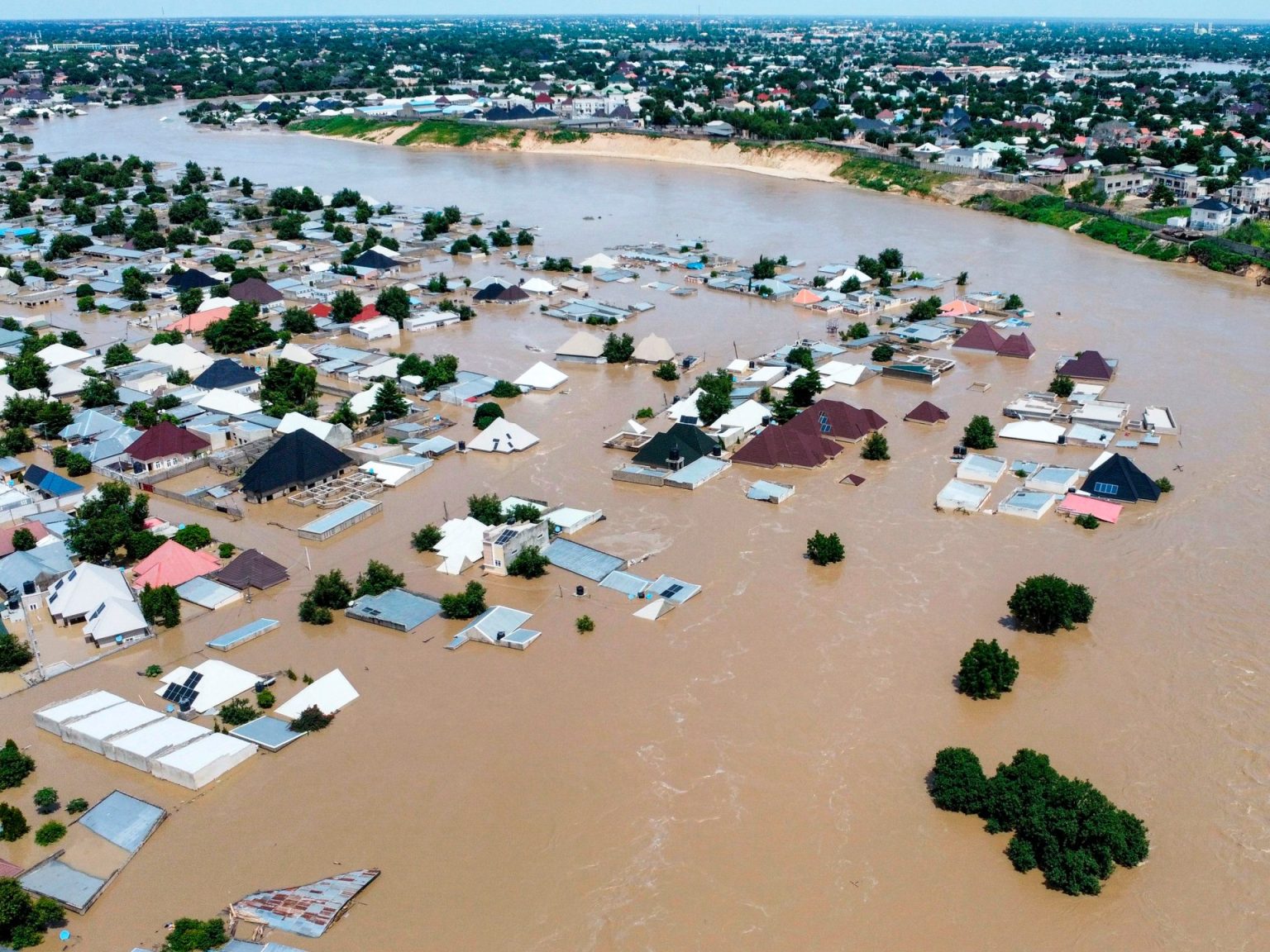Authorities in Borno State are working diligently to provide shelter for residents who have been displaced by severe flooding caused by the collapse of a dam in northeast Nigeria. The flooding has destroyed thousands of homes and exacerbated an already dire humanitarian crisis. The state governor has reported that a million people have been affected by the flooding, putting a strain on resources as officials rush to rescue residents and place them in temporary shelters. Heavy rains led to the overflow of the dam, which in turn decimated a state-owned zoo and brought crocodiles and snakes into flooded communities.
Al Jazeera’s Ahmed Idris, reporting from Maiduguri, Nigeria, described a scene of people evacuating areas covered by floodwaters. Civilians have been conducting rescue operations in the water with limited diving equipment to save as many people as possible. Despite successful rescue efforts, there have been casualties, with dead bodies being recovered from the floodwaters. However, authorities have not yet announced any confirmed deaths. Nigeria’s Vice President Kashim Shettima visited displaced individuals and promised them food, shelter, and medicine, but as of the following day, supplies had not reached those in need.
Borno State Governor Babagana Zulum visited Bakassi camp, where a quarter of the state capital, Maiduguri, had been flooded. He expressed concerns about waterborne diseases being transmitted as a result of the flooding. The collapse of the dam has compounded a humanitarian crisis that has been ongoing for the past decade due to the Boko Haram rebellion. This rebellion, which has resulted in over 35,000 deaths and displaced 2.6 million others in the country’s northeast region, has significantly impacted the region. Bakassi camp, which used to house tens of thousands of people displaced by the Boko Haram rebellion, had been closed last year.
The National Emergency Management Agency reported that flooding in Nigeria has claimed the lives of 229 people since the beginning of the year. In late August, heavy rains in three states – Jigawa, Adamawa, and Taraba – led to flooding that resulted in the deaths of 49 people and displacement of thousands. The worst flooding incident in recent history occurred in 2022 when 600 people lost their lives due to flooding. The situation in Borno State highlights the urgent need for assistance and support from authorities and humanitarian organizations to address the needs of those affected by the flooding and ongoing humanitarian crisis.
Efforts are underway to assess the damage caused by the flooding and provide aid to those affected. Borno State Governor Zulum emphasized the importance of addressing the risk of waterborne diseases in flooded areas and ensuring the safety and well-being of displaced residents. With the region already facing significant challenges due to the Boko Haram rebellion, the impact of the flooding has further strained resources and highlighted the vulnerability of communities in the area. Collaborative efforts between authorities, aid organizations, and the international community will be crucial in providing relief and support to those affected by the flooding and ongoing humanitarian crisis in Borno State.


